Faculty of Health and Life Sciences research student profiles
Thesis title: Optimising the care and support of people with inoperable pancreatic cancer and their family carers
Started: January 2021
Director of Studies: Dr. Lucy Mcgeagh
Second supervisor: Professor Eila Watson
Where are you from?
The UK.
How did you hear about Oxford Brookes University?
I became familiar with Oxford Brookes because in my previous career I had colleagues who worked for the University.
What attracted you to Oxford Brookes University to conduct your research?
I was attracted here to conduct my research because I already knew some of the academics in my department from my previous career.
What were you doing before?
Before I started my degree, I was a Senior Fellow at the Health Services Management Centre at the University of Birmingham, where I had worked for over 12 years in applied health policy and services research as a qualitative researcher.
How easy did you find it to settle into the research environment?
I didn’t feel like a complete fish out of water, given my previous career, but it was quite difficult to start a Research Degree during Covid, with limited access to the campus and to facilities and resources for much of the first year.
I’ve picked a lot of things up as I’ve gone along – who to contact for different things like room bookings and how to get things done like bulk printing and setting up a dedicated answerphone extension for my study. So I think you have to be prepared to be quite self-reliant, which is how it should be really as a post-graduate research student.
Please give an overview of your research project
Enhancing the quality of life for people with inoperable pancreatic cancer and their family carers, through high quality supportive care, is of prime importance, yet evidence shows that there are gaps in care and sub-optimal support in some cases.
Pancreatic cancer is the tenth most common cancer in the UK with approximately 9,000 people diagnosed each year but survival rates are low, only 1 in 4 (25.4%) people diagnosed with pancreatic cancer in England survive their disease for one year or more. Surgery is the only curative treatment for pancreatic cancer, but at present, less than 1 in 10 (10%) of patients are deemed eligible for surgery at diagnosis.
If the cancer is inoperable, treatment then consists of ‘best supportive care’ or ‘palliative care’ to manage symptoms and maintain optimal quality of life. Such care might address physical symptoms such as pain, digestive discomfort, and fatigue, or psychological symptoms such as depression or anxiety.
This study takes a qualitative approach with a longitudinal element, to explore the experiences of people affected by cancer alongside the healthcare professionals who provide care and support to this cohort of patients and their family carers. Semi-structured interviews will take place with patients, family carers and healthcare professionals across a number of NHS and non-NHS sites. Data from the interviews will be analysed using the Framework Approach or Method.
The findings will be shared and discussed with NHS sites and through national networks of people affected by cancer, and healthcare professionals, in order to consider feasible recommendations for service improvements and policy changes.
What do you enjoy about being a research student?
I enjoy the opportunity being a research student offers of exploring ideas, concepts and literature that I wouldn’t have the time to do in a work environment. I also enjoy the autonomy it brings, though the flipside of this is that it is sometimes quite a lonely endeavour. I was very used to working in small teams in all my previous careers so this feels quite different. I try to make sure that I keep in regular touch with friends and ex-work colleagues to stay connected and engaged with everything else that’s happening in the world, as it’s very easy to become quite insular.
What do you think about the research training offered at Oxford Brookes?
Some of the doctoral training sessions have been really interesting and enjoyable – some of the topics were familiar to me but it was nice to have a refresh and a different perspective and it’s always nice to come into contact with people studying such a broad range of subjects at this level.
You can’t rely on the research training to answer all your questions though, or solve all your problems, so you have to be prepared to take the initiative and do plenty of your own study whether that’s reading the literature around your subject, or exploring particular theories in depth or learning about new methodologies.
What are your future plans?
I would like to hope that I can continue to work within the field of pancreatic cancer in some capacity but my plans are quite unformed at the moment.

Thesis title: Uses of music across the lifespan
Started: September 2023
Director of Studies: Dr Clare Rathbone
Where are you from?
Watchfield, England
How did you hear about Oxford Brookes University?
I live in Oxfordshire, so I was always aware of Oxford Brookes University, but I began seriously considering completing a PhD at Oxford Brookes after a friend of mine began her Law degree here and was full of praise for her course. At this time, I had just completed my master's degree in psychology, so I was looking at potential PhD courses, and Brookes seemed like a great campus full of friendly faces. In particular, I was impressed by the psychology department, which has excellent facilities and impactful and interesting research output.
What attracted you to Oxford Brookes University to conduct your research?
I found a studentship advertised on the Oxford Brookes website about conducting a project based on music engagement across the lifespan and decided to apply. The opportunity to be funded and research a topic I have always been interested in under the supervision of leading researchers encouraged me to apply. The excellent facilities and accessible campus were also bonuses.
What were you doing before?
Before I started my PhD course, I had just finished an MSc in Clinical Psychology at the University of Bath. My dissertation investigated the relationship between attention and recognition memory for the early detection of Alzheimer’s Disease. I also worked part-time as a rehabilitation worker for people with brain injuries at Headway UK. Although both were valuable experiences, I was looking to progress into academia rather than clinical, and the studentship at Brookes seemed the perfect opportunity to make this transition and investigate music and brain injury rehabilitation, both of which are my research interests.
How easy did you find it to settle into the research environment?
Due to my previous experience as a research assistant, I found it fairly easy to settle into the research environment. However, this process was made easier through the college induction programme and the support of my supervisors and postgraduate tutor. I think excellent support and resources are available to research students within the department and college. There is a good training programme and any resources needed for your research can be met.
Tell us about your research
Listening to music is an important aspect of daily life that helps to shape identity, manage mood, and relieve boredom. However, as adults age, their engagement with music and reasons for listening to music change. In particular, enjoyment of intense contemporary music such as rock and rap decreases, as does the tendency to listen to music while completing other tasks and exploration of new music. This may be due to changing priorities and goals associated with the challenges of life roles such as student or parent. Furthermore, our ever-evolving sense of identity and increasing emotional intelligence may also reduce the need for music to manage our moods or express ourselves. Music has been found to improve the well-being of young adults, but we live in an ageing society, so it is important to understand how music can affect the well-being of older people. However, research concerning music engagement across the lifespan is relatively scarce, and findings are inconsistent and inconclusive. Therefore, my research aims to re-examine whether identity, emotional intelligence, and life roles can affect music engagement across the lifespan. I am currently investigating this using a questionnaire study where I will compare results across age groups from 16-80.
In the older population, the prevalence of brain injuries is rising. Listening to music whilst completing rehabilitation tasks can improve recovery in memory and attention for brain injury patients. Specifically, listening to music produced when patients were 10-30 years old may lead to significant improvements in cognitive function. These improvements may be due to the reminiscence bump, where events from these ages are more likely to be remembered than events from other ages. However, interestingly, these improvements are more notable among individuals with brain injuries than healthy controls. This illustrates the potential to use music from the reminiscence bump to improve rehabilitation outcomes. However, no studies have investigated the effect of music from the reminiscence bump on cognition in individuals with brain injuries. Therefore, my project also aims to explore music engagement in individuals with brain injuries and critically evaluate whether music can affect cognitive performance in individuals with brain injuries. I will investigate this through a combination of interviews and experimental studies.
What do you enjoy about being a research student?
The best thing about being a research student is the opportunity to conduct and publish your own research. I enjoy discussing research ideas and hearing about others' research, and the PhD community is so supportive and helpful. The biggest challenge so far has been juggling many different tasks and deadlines, but I find keeping an organised calendar and setting myself tasks to complete each day helps me stay on track.
What do you think about the research training offered at Oxford Brookes?
The research training offered at Oxford Brookes is extensive and covers many aspects of completing a research degree from initial registration through to submission and publishing. This has been a helpful resource for answering questions, understanding expectations, and de-mystifying the process.
What are your future plans?
My future plans are to stay within academia, eventually becoming a lecturer and having the opportunity to develop studies from my thesis, such as creating a music-based intervention for brain injury rehabilitation.
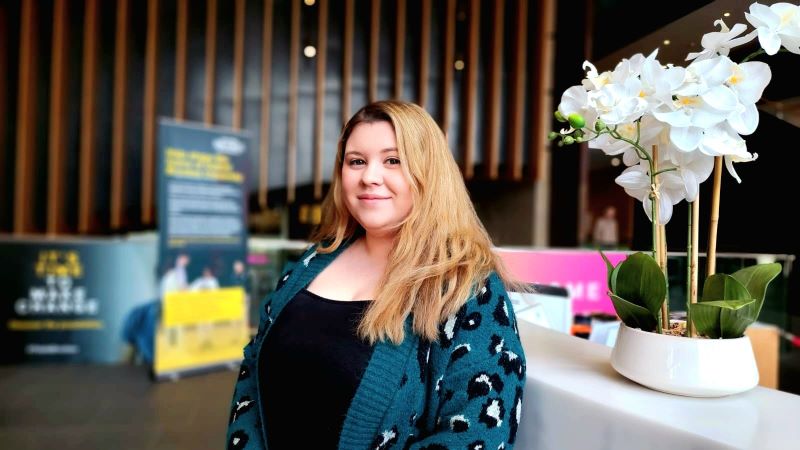
Thesis title: How do I get past this? The influence of anxiety, self-efficacy and movement variability on the perceptual judgements and executed actions of adults with and without Developmental Coordination Disorder (DCD).
Started: January 2020, awarded 2024
Director of Studies: Professor Kate Wilmut
Where are you from?
Oxford.
How did you hear about Oxford Brookes University?
While researching Psychology Master’s courses that did not require an undergraduate degree in Psychology – so the MSc in Psychology at Oxford Brookes suited me perfectly. I had always known about Oxford Brookes having grown up in Oxfordshire, and my first impressions on visiting were really positive – the facilities are wonderful and everybody is so friendly and helpful.
What attracted you to Oxford Brookes University to conduct your research?
I thoroughly enjoyed working with Dr Kate Wilmut as my supervisor for my MSc dissertation project, and when she flagged up that there may be an opportunity to build on this work for a PhD, I jumped at the chance to apply for the studentship! I am really proud to be working as part of the Perception and Motion Analysis (PuMA) Research Group.
What were you doing before?
Before starting my MSc in 2018, I was a Secondary School Modern languages Teacher, teaching Spanish and French in an Oxfordshire school. I was originally trained as a linguist before doing a PGCE, though Psychology and the world of research have always fascinated me and I decided to make the move after several years of teaching.
How easy did you find it to settle into the research environment?
I think the atmosphere and resources on offer at Oxford Brookes and in my department have made it quite easy for me to settle into the research environment. It was also great already feeling established within the university from doing my MSc here previously. It’s an environment that I absolutely love and appreciate being in, and the people around me including my supervisory team, other PhD students both in Psychology and across the faculty, as well as everyone in the wider department have made it a really supportive and positive experience.
Please give an overview of your research project
My research is investigating the role of anxiety, self-efficacy and movement variability (one’s ability to move consistently) in how adults with and without Developmental Coordination Disorder (DCD) think they will behave (their perceptual judgement) and how they actually behave (their executed action). I am investigating this using questionnaires and lab-based work using motion capture software within the Perception and Motion Analysis Laboratory at Oxford Brookes, using a task based around navigating obstacles in the everyday environment.
DCD (sometimes known as Dyspraxia) is a condition affecting around 5% of the population where motor coordination does not align with the expected level for an individual’s age. It manifests in fine (e.g., writing by hand or doing up buttons) and gross motor difficulties (e.g., walking down a narrow street without bumping into obstacles) in both childhood and adulthood, which can impact negatively on everyday life (Kirby, Edwards, Sugden & Rosenblum, 2010).
My PhD is building on findings from my MSc research showing that emotional state, and specifically anxiety, influences what typically developing (TD) individuals think they will do (i.e., perceptual judgement of potential action), but not what they actually do (i.e. the physically executed action) (Harris & Wilmut, 2020). This suggests that different factors, including anxiety, constrain perception of potential action compared to perception during the execution of action.
I am first using an online questionnaire to investigate how different psychological factors are related to people’s movement ability. This considers elements of self-efficacy (how well you perceive you can do something), self-concept (ways in which you see yourself), resilience and anxiety among adults with and without DCD. To date very little is known about self-efficacy, self-concept, resilience and anxiety within the DCD population, and how these differ to their typically developing counterparts. This phase will therefore aim to provide valuable insights into the lived experience of adults with DCD, a group among which an urgent need for further research has been identified (Blank et al., 2019). Findings from this will also help create an appropriate task-specific self-efficacy and anxiety scale for subsequent use. This is necessary because a self-efficacy scale focusing specifically on navigating the environment does not yet exist.
Subsequent phases will aim to establish and develop understanding of how different types of anxiety, self-efficacy and movement variability may constrain the ways in which adults with and without DCD perceive their action capabilities and subsequently actually act. Its objective will be to determine the point at which behaviour changes for both perceptual only and action tasks (judging the space you need to walk through a door without bumping into the sides, and then actually walking through) and the way in which this point relates to body size, movement consistency, anxiety and self-efficacy levels in these populations.
This research aims to contribute new, in-depth understanding of the roles of anxiety, self-efficacy and movement variability in the relationship between how adults with DCD perceive their intentions and abilities to act in the world, and how they realise those actions in comparison with adults without DCD. This will be useful in informing interventions, particularly regarding perceived self-efficacy in confidently and safely navigating one’s environment, which aim to improve the quality of functional and emotional life for individuals with DCD.
What do you enjoy about being a research student?
I very much enjoy being able to plan my own time and also the variety of different skills and areas of focus that form part of the research cycle. I am also really enjoying being able to see the skills that I will need for my future career developing before my eyes through the work I am doing and under the supportive guidance of my supervisors (Dr Kate Wilmut and Dr Clare Rathbone) – it’s a great feeling!
There are challenges however, and I think for me the flexibility of managing your own time effectively and healthily is one of these. I have found that treating my PhD as much as possible like a ‘nine to five’ job - with some exceptions when necessary of course - helps me stay on the right track in terms of productivity, efficiency and establishing a healthy work-life balance.
What do you think about the research training offered at Oxford Brookes?
The research training offered at Brookes is brilliant because it is so multi-faceted and every session runs at multiple times of the academic year. This means that we are able to adapt our training to align with the stage of our own research.
So far, I feel that the training I have attended has helped me both develop new skills, consolidate previous knowledge and build my confidence across various areas including teaching and applying for ethical approval to name just a couple.
What are your future plans?
I plan to pursue an international career in research and am excited to see what kinds of opportunities may arise from doing my PhD in this field of study. I am keeping a very open mind about this to see where my research could take me in the future.
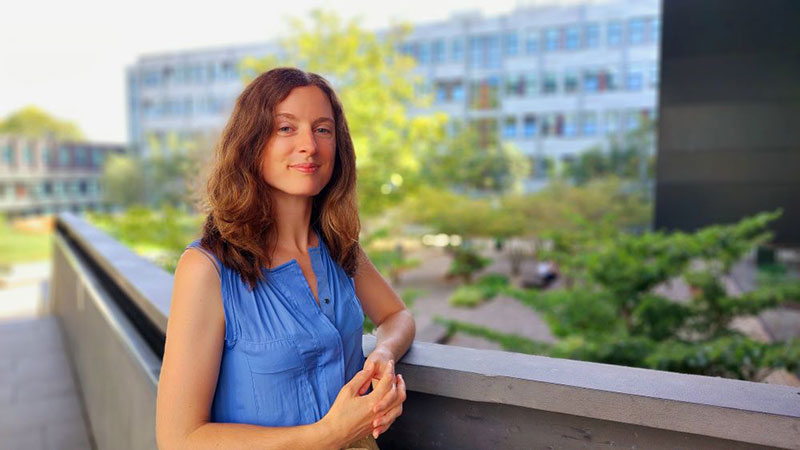
Thesis title: Using automatic processes to change drinking behaviour in midlife adults
Started: September 2018
Director of studies: Dr Emma Davies
Where are you from?
Bristol
How did you hear about Oxford Brookes University?
After studying for a master’s degree at Oxford Brookes University, I worked as a Research Assistant in the Faculty of Health and Life Sciences, and found both experiences enjoyable.
What attracted you to Oxford Brookes University to conduct your research?
Through working here, I was already part of the Prevention Science Group, and knew both my supervisors - Dr Emma Davies and Professor David Foxcroft. These were important factors in my decision to apply to study for a PhD here. I’d also heard about the Nigel Groome studentships, and feel fortunate to be one of the students benefiting from this source of funding.
What were you doing before?
In 2017, I started working as a post-graduate Research Assistant in the Faculty of Health & Life Sciences, which has given me great experience working on prevention and supportive cancer care research projects. Before that I worked as a market research and customer insight manager in the voluntary and corporate sectors. Whilst working for a national disability charity, I realised that I wanted to develop new skills that could be applied in health research, and this led to me undertaking the MSc in Psychology.
How easy did you find it to settle into the research environment?
I’ve found the research culture here to be open, welcoming and enabling. People are willing to share what they have learned from their own research experiences, or suggest other sources of advice and support. Recently, the psychology department moved into refurbished offices, giving researchers access to new facilities and equipment. I can see how these will support the different research activities in my PhD project.
Tell us about your research.
Around two thirds of alcohol-related deaths in the UK occur in people who are in their midlife years i.e. aged between 45 and 64 years of age. Even though some people are drinking less than they did 10 years ago, patterns of alcohol consumption for people aged 45+ years are largely unchanged. Currently there is a limited amount of research focused on midlife drinking behaviour, and very few initiatives aiming to reduce alcohol consumption in this age range have been developed and tested.
Although most adults in the UK know about government guidance suggesting that low risk drinking means consuming no more than 14 units of alcohol each week, there is evidence to suggest that advice such as this has little effect on behaviour. The limitations of using information to drive behaviour change are explained by dual-process models of health behaviour, in which decision making can follow two paths. Cues such as information are considered via a conscious or reflective pathway whilst a second pathway, representing non-conscious or less deliberate decision making, explains responses based on automatic associations, habits and impulses. Results from several research studies show that automatic processes are particularly good at explaining and predicting drinking behaviour. The purpose of my PhD project is to research, develop and test an intervention that aims to help midlife adults reduce the amount they drink, by targeting these automatic processes.
Organisations such as the Medical Research Council (MRC) want health interventions to be informed by evidence and theory, and to be developed using systematic processes. My project will be using the Behaviour Change Wheel (BCW), which provides a clear eight-step process, to guide the development of a new intervention to reduce the amount people drink. In line with MRC recommendations, the first four steps of the BCW focus on understanding the problem, resulting in a detailed analysis of issues around midlife drinking. It is only at this point that decisions about the features of the intervention will be assessed and decided, in steps five to eight of the BCW. Once the intervention has been fully developed, it will be tested in a pilot study, and evaluated. Positive results from the pilot and evaluation studies may indicate that this type of intervention has potential for practical application, following further research and development.
What do you enjoy about being a research student?
It’s a privilege to be able to spend time learning and develop new skills, and to be working with people that you respect and with whom you share interests. Life as a research student means taking on responsibilities, but you’re also given autonomy and flexibility in the way you approach and manage your work. There are bound to be challenges along the way, and learning how to deal with these, and where to go for advice and support, is all part of the experience.
What do you think about the research training offered at Oxford Brookes?
There are plenty of training opportunities at Oxford Brookes University, and students are encouraged to get involved with different development activities that are available at a department, faculty and university level. My development program to date has been excellent, and I feel well supported and thoroughly prepared to undertake my first research study.
What are your future plans?
Like many other countries, the UK is facing some considerable challenges in responding to changing healthcare needs. We need good quality research, and skilful researchers to help us understand and address those needs. I’d like to be a part of that, and continue to build experience and expertise in developing health interventions.
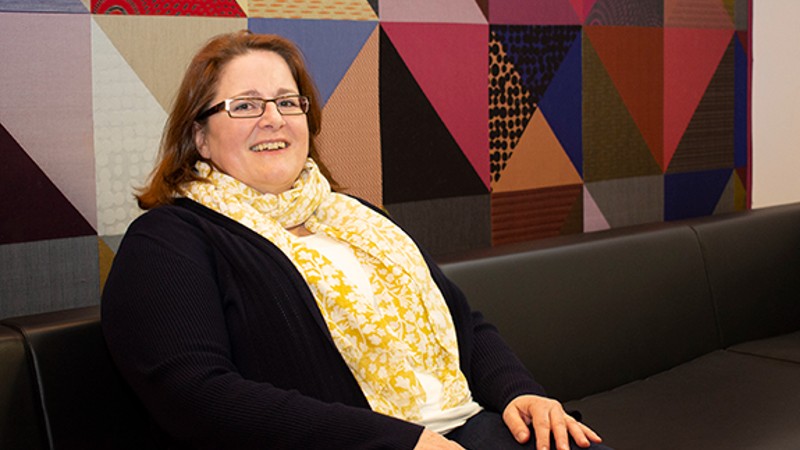
Thesis title: The role of actin isoforms in cancer adhesion of the endothelium during metastasis
Started: September 2023
Director of Studies: Dr Ryan Pink
Where are you from?
Oxfordshire
How did you hear about Oxford Brookes University?
Living locally to Oxford Brookes University meant I heard lots of good reviews from friends. Whilst completing a Biomedical Science undergraduate degree at Brookes the lecturers were very supportive and invited me to join their weekly lab meetings, from there I applied to complete an MSc by Research.
What attracted you to Oxford Brookes University to conduct your research?
The friendly research students and PI’s really do make research at the university an enjoyable environment to be in, plus having access to the fantastic bioimaging unit.
What were you doing before?
I completed A-Levels in Biology, Politics and Drama before opting to continue down a biology route.
How easy did you find it to settle into the research environment?
The research environment was a big change compared with undergraduate study but the supervisors and other post graduate students are all very supportive as well as the university offering inclusive introductory sessions.
Tell us about your research
The metastatic spread of cancer is found to be the cause of over 90% cancer patient death. With this in mind it is important we understand metastatic cancer, pathways that drive this and promote cancer movement. My project looks specifically at cancer cells that have reached the blood and how these become sticky and hijack the body’s natural immune mechanism to then allow the cancer cells back into local tissue which can form a new tumour. This project aims to investigate the spatial expression of actin in breast cancer cells and their role in binding to endothelial cells. Techniques to establish this include a wide range of microscopes, Immunocytofluorescence, flow cytometry and cell culture.
What do you enjoy about being a research student?
I really love all the additional learning that is encouraged, with the goal of 70 hours to help develop personal, professional and career skills. With additional work, comes some difficulties with time management, but with help from supervisors it is easier to prioritise and manage your time more effectively achieving a good balance.
What do you think about the research training offered at Oxford Brookes?
The research training is a great opportunity to begin presenting your results, get to know other research students and find courses that can shape the way you tackle your research.
What are your future plans?
I will be staying at Oxford Brookes to begin a PhD as part of the Groome Studentship in September continuing my current project.
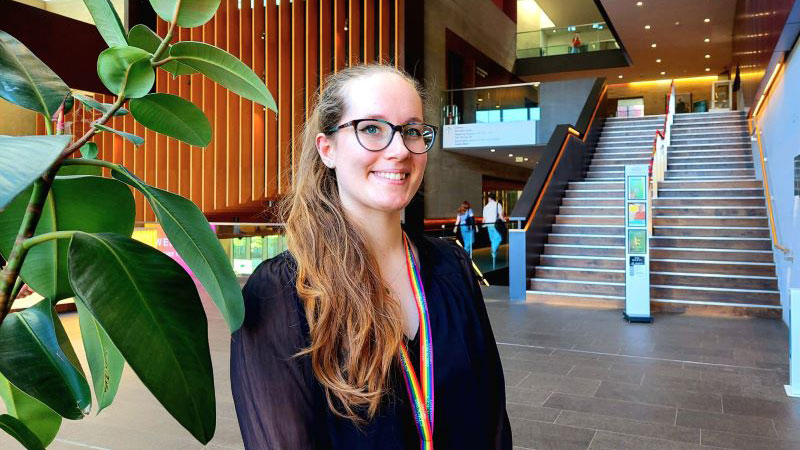
Thesis title: Investigating the Molecular Mechanism of Groucho Protein Function During Development in Drosophila Melanogaster
Started: September 2022
Director of Studies: Dr Barbara Jennings
Where are you from?
Istanbul, Türkiye
How did you hear about Oxford Brookes University?
When I was looking for PhD positions through different portals, I came across Oxford Brookes University. Unfortunately, I didn’t attend a postgraduate fair, as I was living in a different country back then. However, my first impression of Brookes was very positive.
What attracted you to Oxford Brookes University to conduct research?
The project Barbara offered was just what I was looking for. In addition, I wouldn’t be able to do my PhD without funding, therefore being able to receive Nigel Groome Studentship was an essential addition to my decision too.
What were you doing before?
I was doing my Master’s degree at Acıbadem Mehmet Ali Aydınlar University in İstanbul, Türkiye. My thesis was on the co-occurrence of 3 SNPs on BRCA1 gene and how it affects breast cancer formation. At the same time, while doing my MSc and after I graduated until I started my PhD, I was a Research Assistant at the same university for 3 years.
How easy did you find to settle into the research environment?
Settling into the research environment was fairly easy as I had experience before. Barbara and Korneel supported and trained me to make sure I would have a head start in the research environment. In addition, other PhD candidates were amazingly helpful. Especially the support I have with my supervisory team is one of the driving force of my PhD. Resources available at Brookes are very inclusive and helpful, not only academically but also personally.
Tell us about your research.
Precise control of gene expression in response to developmental and environmental cues is essential for life. Transcription factors (TFs) play a key role in regulating the spatial and temporal expression profiles of many genes during animal development. The Gro/TLE/Grg family of proteins are recruited by many TFs to repress gene expression during a variety of biological processes. Gro is also highly conserved across evolution and has many homologs and orthologs. Previous studies (using overexpression analysis) have indicated that post-translational modifications including oligomerisation and phosphorylation may play an important role in regulating Gro’s activity as a repressor. However, the importance of these post-translational modifications on Gro function during development is as yet unknown. We are aiming to uncover mechanisms through which TFs and Gro proteins function together to inhibit gene expression, focusing on the role of post-translational modifications to Gro in fly.
What do you enjoy about being a research student?
Being able to study an area that I am interested in such depth definitely first comes to mind. I enjoy researching, learning, being able to contribute, and being part of academia. I faced a long-term challenge with my research this year, the experiments were not working as we expected and unfortunately, I was not able to progress. Both of my supervisors supported me throughout this time with different strategies, and I learned something from both during this stage. I tried to stay calm, be as rational as possible, and try to figure out the problem while also conducting backup plans. I also made sure I was checking myself and my health on a regular schedule and talked with other researchers to gain perspective both academically and personally.
What do you think about the research training offered at Oxford Brookes?
The research training offered is very helpful, not only for scientific research but also for public engagement, writing, self-improvement, career development, and research planning. I think this program is preparing me to become the academic I am dreaming to be.
What are your future plans?
I would like to continue with my research as a post-doc researcher and I am planning to stay in academia.
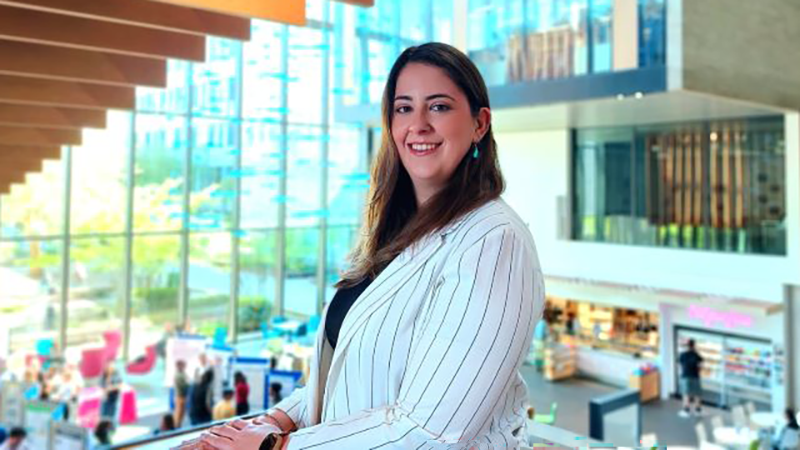
Thesis title: Genome Scale Metabolic Modelling to Identify Changes in Metabolic Responses of Pathogenic Bacteria to Antibiotic Challenges.
Started: 1 November 2021
Director of Studies: Dr Mark Poolman
Where are you from?
India
How did you hear about Oxford Brookes University?
I heard about OBU from the PhD advertisement at EURAXESS website.
What attracted you to Oxford Brookes University to conduct your research?
I was attracted to both research group and scholarship. I am a Marie-Sklodowska Curie Actions fellow. My research group at OBU, i.e., Cell Systems Modelling group is focussed on modelling metabolic networks of cell systems, for a holistic understanding of metabolism, which forms a part of broader field of systems biology.
What were you doing before?
I have done my undergrad and masters in Microbiology with Honours from Univerity of Delhi and Kurukshetra University, India, respectively.
I did my first research job as a Research Fellow (Research fellow is position in India which is equivalent to Post Grad Research Assistant in the UK) in Department of Medical Microbiology at Post Graduate Institute of Medical Education and Research, Chandigarh, India. The project was to identify the role of anaerobic bacteria present in gut as a reservoir for Antimicrobial Resistance (AMR).
After that, I was working as a Research Fellow in Molecular Imaging and Diagnostics Lab at Indian Institute of Technology, Delhi. The project was jointly funded by UK ESRC and Department of Biotechnology, Government of India. The aim of the project was to develop user driven, innovative diagnostics to curb AMR. My role was to develop in-house buffers to extract bacterial DNA from urine samples, to be used in a microfluidic chip which was being developed as a diagnostic tool.
How easy did you find it to settle into the research environment?
I found it really comfortable to settle into the research environment because of all the support and resources provided by the university. My supervisor has been really supportive throughout my journey. Since I transitioned from a “wet lab” to a “dry lab”, it was a big change at first, but I really enjoyed learning new techniques and the importance of computational aspects in biological research.
I taught a Masters course on Object-oriented programming as a part of my training which was really helpful in my PhD. As a part of my PhD project, I got the opportunity to travel to different countries in Europe and attend training courses for experimental techniques such as proteomics, transposon sequencing, drug screening, etc. I also did a secondment of 11 weeks as a part of my PhD at University of Copenhagen last year.
Tell us about your research.
My research project is a part of INNOTARGETS-ITN. It is a EU Horizon 2020 MSCA-ITN consortium of academic and industrial partners, the main objective of which is to apply innovative approaches for identifying metabolic drug targets in resistant pathogenic bacteria. The aim of this project is to use genome scale metabolic modelling and to integrate experimental data generated by the collaborators into the model, for exploring metabolic response of resistant bacteria when it is grown in the presence of antibiotics.
Metabolic modelling establishes a mathematical representation of the reactions present in the metabolic system under study including the inputs in the form of components of growth media and outputs in the form of biomass components. Models are typically constructed from online databases and can be analysed by a number of established techniques, including:
- Identifying the groups of reactions working together in a metabolic network (Enzyme subsets).
- Identifying the groups of reactions which form minimal independent pathways in a metabolic network (Elementary modes).
- Identifying the sets of reactions that fulfil a given function (Linear Programming).
In this project, a genome scale metabolic model (GSM) of E.coli MG1655 has been constructed using an available genomic database (EcoCyc) which contains genes and reactions present in the organism. The model was then curated by checking for energy conservation and biomass formation by applying LP to GSM. In addition to model construction and curation, the techniques to integrate experimental data into the GSM have been developed and the model has been analysed to identify changes in metabolic pathways required for growth under antibiotic challenges.
Integration of different kinds of experimental data into modelling analysis will help in developing new techniques for exploring how bacterial metabolism is involved with AMR and potentially in identifying novel drug targets.
What do you enjoy about being a research student?
I enjoy learning new things every day which is the beauty of research. Being a PhD student gives you freedom to explore your research topic as much as you can, but sometimes pressure to finish in time and failures can be major challenges. I try to balance my work and life and treat my PhD as any 9 to 5 job. My supervisor always suggests taking breaks and weekends seriously so that you can come back to the problems with a fresh perspective.
Although there are never-ending deadlines in a PhD, I like to have a deadline because it keeps you in check and you become aware of your time and manage it accordingly. Annual progress reports really help in the process of writing as they are short documents which help in giving a kickstart to thesis writing.
What do you think about the research training offered at Oxford Brookes?
Graduate college trainings offered at OBU are really helpful as they are designed to help develop transferable skills required for research irrespective of the field of expertise. I would also like to highlight the importance of library services as the inter-library loans services for research papers which are not open and accessible have been really helpful during my PhD.
I have benefitted from them a lot, because they not only prepare you for finishing your PhD, but also prepare you for the job market after your PhD in the form of courses related to networking in conferences etc. I have presented my research in a lot of International conferences and symposiums organised in my research group during my PhD. I have also assisted my supervisor in conducting Metabolic modelling workshops and Python teaching courses.
I feel that doing PhD at OBU has given me a wide range of skill sets including not only research, but also transferable skills which will help me in my future endeavours.
What are your future plans?
My future plans are to get a research based job in the field of computational biology in academia or industry, preferably related to drug discovery and AMR.

